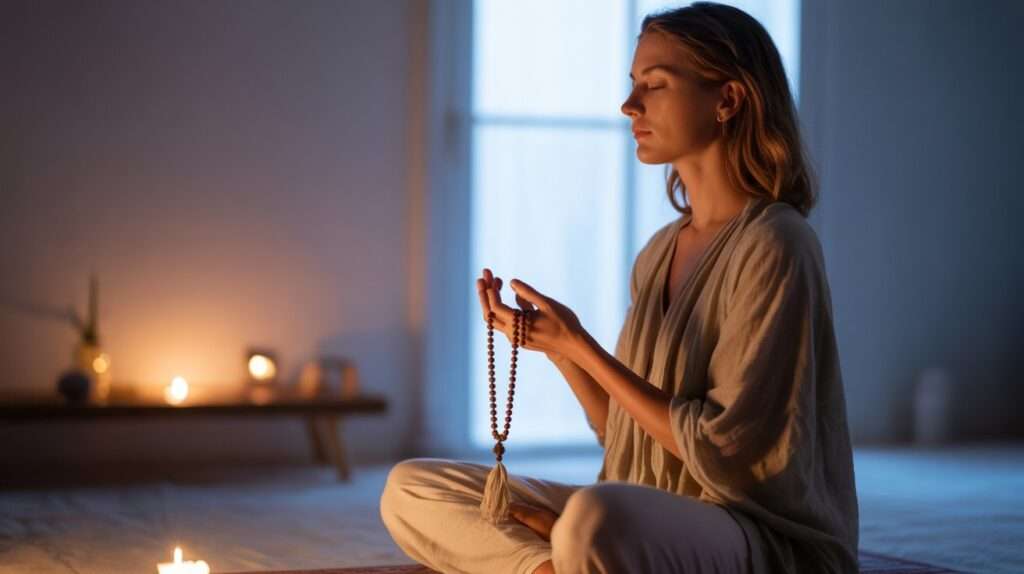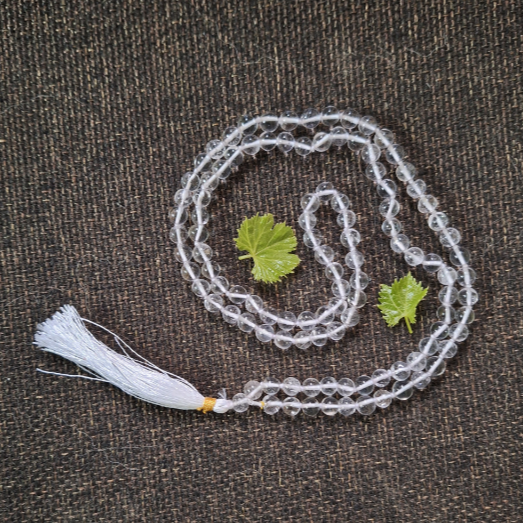The Whispering Hours of the Soul
Dear Ones,
Have you ever found yourself waking up suddenly between 3 a.m. and 5 a.m., eyes open, heart awake, yet the world around you still asleep?
You check the clock, wonder why this keeps happening, maybe sip some water — and sometimes, you just stay there, feeling a strange calm or a quiet restlessness.
I’ve often received messages from so many of you saying, “Dr. Neeti, I keep waking up at 3:30 a.m. or 4:15 a.m. What does it mean? Is the universe trying to tell me something?”
And my answer is always yes.
This sacred window — from 3 a.m. to 5 a.m. — is not an accident. It’s the Universe’s gentle invitation to connect with your inner self, your higher consciousness, and your purpose.
In Indian wisdom, this time holds the vibration of Brahma Muhurta (between 3:30 a.m. and 5:30 a.m) — the Creator’s Hour. In other ancient cultures, too, it is revered as a spiritual dawn. And today, even modern science acknowledges its power — linking it to our body’s circadian rhythm, optimal brainwave state, and emotional balance.
Let’s explore this in depth — from the Ashta Pahar system of India to the modern neuroscience behind this hour, and finally, what you can actually do if you find yourself awake during this time.
Understanding the 8 Pahars of the Day – The Ancient Indian Time System
Before we dive deeper into 3 a.m. to 5 a.m., we must first understand the beautiful time-division that our ancestors followed — Ashta Pahar.
In ancient Indian philosophy, a day (24 hours) was divided into eight equal parts (4 pahar of the day and 4 pahar of the night). Each pahar lasted approximately three hours, representing a specific energetic rhythm of nature. These rhythms were believed to correspond with the human body, mind, and the spiritual field.
Here’s how the Ashta Pahar divides the day:
| Pahar | Approx. Time | Name (Sanskrit) | Meaning / Significance |
| 1st Prahar | 6:00 p.m. – 9:00 p.m. | Pradosha (प्रदोष) | A highly auspicious period for evening worship, lighting diyas, and expressing gratitude to the Divine. Avoid sleeping during this time. |
| 2nd Prahar | 9:00 p.m. – 12:00 a.m. | Nishitha (निशीथ) | The deep-night period, ideal for deep rest; subconscious reflection; dream stage begins. |
| 3rd Prahar | 12:00 a.m. – 3:00 a.m. | Triyama (त्रियामा) | A mystical Prahar associated with intense spiritual and Tantric practices. Avoid bathing or eating. It is a time of heightened subconscious energy and inner transformation. |
| 4th Prahar | 3:00 a.m. – 6:00 a.m. | Usha Kaal (उषाकाल) or Brahma Muhurta | The final Prahar of the night — symbolizing dawn and awakening. The most sacred time for meditation, chanting, and learning. Waking up during this time is considered very beneficial. |
| 5th Prahar | 6:00 a.m. – 9:00 a.m. | Purvanha (पूर्वान्ह) | The first Prahar of the day. Ideal for morning pooja, studying, or beginning new tasks. The atmosphere is pure and charged with positive energy. |
| 6th Prahar | 9:00 a.m. – 12:00 p.m. | Madhyanha (मध्यान्ह) | The midday Prahar. Avoid conducting auspicious or new rituals during this period. It’s a time for action, decision-making, and productivity. |
| 7th Prahar | 12:00 p.m. – 3:00 p.m. | Aparanha (अपरान्ह) | The afternoon phase, suitable for meals, continuing tasks, and introspection. A balanced time for mindful activity. |
| 8th Prahar | 3:00 p.m. – 6:00 p.m. | Sayanha / Sayamkala (सायंह / सायंकाल) | The last Prahar of the day. Avoid sleeping or performing pooja during this time. A period to unwind and prepare for the evening’s Pradosh Kaal. |
- So, the 3 a.m. to 6 a.m. period is considered the last pahar of the night — Ushakaal and Brahma Muhurta starts in this Prahar — and it carries profound spiritual significance.
The 3 a.m. to 5 a.m. Window: The Hour of the Divine Whisper
In the Ashta Pahar, this time lies in the Brahma Muhurta, which literally means “The Hour of Brahma” — or “The Creator’s Time.”
According to ancient Indian scriptures, this is the period when the cosmic energy is most sattvic — pure, peaceful, and infused with divine intelligence. The air is rich in oxygen, the surroundings are calm, and your mind naturally moves inward.
The Garuda Purana and Ayurveda texts mention that waking up during this time aligns you with the rhythm of nature and helps in spiritual evolution.
Here’s why this time is so powerful:
- The Mind is Silent – Between 3 and 5 a.m., the conscious mind is less active, while the subconscious is open and receptive. This is the ideal time for meditation, visualization, and prayer.
- Nature’s Energy is Purest – The atmosphere is free from noise and digital frequencies. Even plants release oxygen-rich air, helping you breathe deeper and clearer.
- Your Vibrational Frequency is Highest – During these hours, your body’s natural vibration is elevated. It’s easier to manifest, heal, and connect to universal guidance.
- The Spiritual Veil is Thinnest – Many ancient cultures, from the Buddhist monks of Tibet to Japanese Zen masters, rise before dawn. They call it the hour of divine clarity.
In Yogic science, this is also when the pineal gland — the seat of intuition — is most active. Melatonin levels are high, brain waves move in alpha and theta states, and deep insights are more easily received.
Also read: Why You Can’t Focus — And What Your Mind & Planets Are Trying to Tell You
Modern Science and the 3–5 a.m. Time: A Perfect Alignment
Let’s connect this ancient wisdom with what modern research says.
- Circadian Rhythm & Melatonin
- Between 3–5 a.m., your melatonin (the “sleep hormone”) is at its peak.
- If you wake up naturally at this hour, it may mean your sleep cycle is complete — your body is signalling that it’s ready for early-morning alignment.
- Waking up during this period regularly is not “insomnia”; it can actually be a sign of deep spiritual alignment.
- Brain Wave Transition
- The brain moves from delta (deep sleep) to theta (meditative) and then alpha (calm alertness).
- These brain states are ideal for manifestation, creativity, and spiritual connection — exactly why monks, yogis, and early risers meditate then.
- Cortisol Awakening Response
- Around 4–5 a.m., your cortisol (energy hormone) starts rising. If you use this surge consciously — by journaling, chanting, or planning your day — it sets a calm yet focused tone for your entire day.
What Different Cultures Say About This Time
It’s fascinating how this same window — 3 to 5 a.m. — is honoured across the world:
- Buddhism: Monks in Thailand, Sri Lanka, and Japan begin their day around 4 a.m. for meditation and prayer. They believe dawn meditation brings insight and detachment from ego.
- Chinese Medicine: The Lung Meridian (3–5 a.m.) governs breath and emotional release. Waking at this time indicates the body or soul is seeking to release sadness or grief.
- Christian Mystics: The “hour before dawn” is considered the time when the spirit is most awake and receptive to divine messages.
All these point to one truth: this is the time when the veil between human and divine energy becomes thinner, allowing you to realign with your soul’s purpose.
If You Wake Between 3 a.m. – 5 a.m., Here’s What You Can Do
If you often find yourself awake at this hour, instead of forcing yourself back to sleep, you can use this time to realign, reflect, and recharge your spirit.
Here are some simple and effective practices I personally recommend:
1. Sit in Silence and Breathe

Just sit comfortably, close your eyes, and take 7–9 deep breaths.
Feel your body expanding with each inhale and releasing any emotional weight with each exhale.
This helps balance the Lung Meridian (as per Traditional Chinese Medicine) and calms your nervous system.
2. Chant with a Jaap Mala

If your mind feels restless or heavy, pick up a Jaap Mala — preferably made of a crystal aligned with your intention.
Here are a few I recommend for this specific time:
| Intention | Crystal Jaap Mala | Mantra / Chant |
| Peace & Calm | Amethyst Mala | “Om Shanti Shanti Shanti Om” |
| Spiritual Awakening | Clear Quartz or Rudraksha Mala | “Om Namah Shivaya” |
| Abundance & Clarity | Citrine Mala | “Om Hreem Shreem Lakshmi Namaha” |
| Protection & Grounding | Smoky Quartz Mala | “Om Dum Durgaye Namaha” |
Perform 108 repetitions or simply chant until your mind feels light. The vibration of sound merges with the stillness of dawn, amplifying your inner peace.
3. Journaling or Automatic Writing

Keep a notebook near your bed. When you wake up, write freely — don’t censor yourself.
Sometimes the Universe sends messages through our subconscious. At dawn, these thoughts flow most clearly.
Write down:
- What emotions you’re feeling.
- What your intuition is trying to tell you.
- Any dream or idea that came in the night.
4. Gratitude Whisper
Softly whisper 5 things you’re grateful for.
Saying “thank you” at 3 or 4 a.m. aligns your heart with the highest vibration of the Universe — abundance.
5. Morning Crystal Connection
You can also hold a crystal in your palm while meditating.
Some powerful ones for this time are:
- Selenite: Connects you with higher light frequencies.
- Clear Quartz: Amplifies clarity and guidance.
- Amethyst: Activates your intuition.
- Labradorite: Strengthens spiritual protection.
6. Affirmations to Align with the Dawn Energy
You can softly repeat:
- “I am in tune with the divine rhythm of the Universe.”
- “I wake with clarity, peace, and purpose.”
- “The early morning light cleanses and renews me.”
- “I am guided and protected by divine energy.”
These affirmations gently reprogram your subconscious while you’re still between dream and wake states.
How to Build a 3–5 a.m. Morning Routine
You don’t have to wake up every day at 3 a.m. — start gently.
Try setting your alarm for 4:30 or 5 a.m. and observe how your mind and body feel.
Here’s a sample early morning ritual I personally follow and recommend:
- Wake up and wash your face with cool water.
- Light a diya or candle.
- Sit with your Jaap Mala and chant for 10 minutes.
- Meditate or focus on your breath for 10 minutes.
- Write down one intention for the day.
- Drink warm water infused with tulsi or lemon.
- Step outside and witness the sunrise in silence.
This simple 30–45-minute practice has the potential to change the entire course of your day — and over time, your life.
A Spiritual Insight: The Universe Awakens with You
Every time you wake up between 3–5 a.m., don’t think something is wrong — think that something beautiful is calling you.
The Universe doesn’t disturb your sleep randomly. It’s whispering —
“Beloved soul, it’s time.
The world is quiet, the veil is thin — come, meet yourself.”
This is the time to pray, forgive, release, and renew.
It’s the time when angels whisper guidance, when your ancestors bless you, and when your higher self speaks most clearly.
In Closing: Reclaiming the Sacred Dawn
In our fast-paced lives, we often forget that nature has its own rhythm — and when we tune into it, life starts flowing effortlessly.
The 3–5 a.m. hours are not just about waking up early — they’re about waking up within.
So next time, when your eyes open in the quiet darkness, instead of reaching for your phone, place your hand on your heart and say:
“Thank you, Universe, for choosing me to awaken now.”
Because truly, those who are called to awaken between 3 and 5 a.m. are the ones chosen to bring light into the world.
With Love & Light,
Dr. Neeti Kaushik
Founder, Nitty Gritty with Dr. Neeti Kaushik
For more information, visit our YouTube channel:






jayesh kumar gehloy
Hello, i used get awake around 2 or 3. if dont sleep again it is difficult to work during the day in office. Is it ok go to bed after 30 minutes ritual and meditation in the morning. Please advise.
Hetal jantrania
Beautiful explanation. We littlebit about this but now it’s crystal clear. Mem you give so much nice guidance n information.
Rita chakraborty
Every day I wake up at 4:55…yes this is exact time…every day I do the meditation..go for a walk and yoga..
Very relaxing time
Archana Kaul
Thank u so much .I usually awake around this time but I have some confusion regarding this ,can we do meditation,japmala etc without taking bath…..and can we do meditation on bed itself .pl guide.
Regards